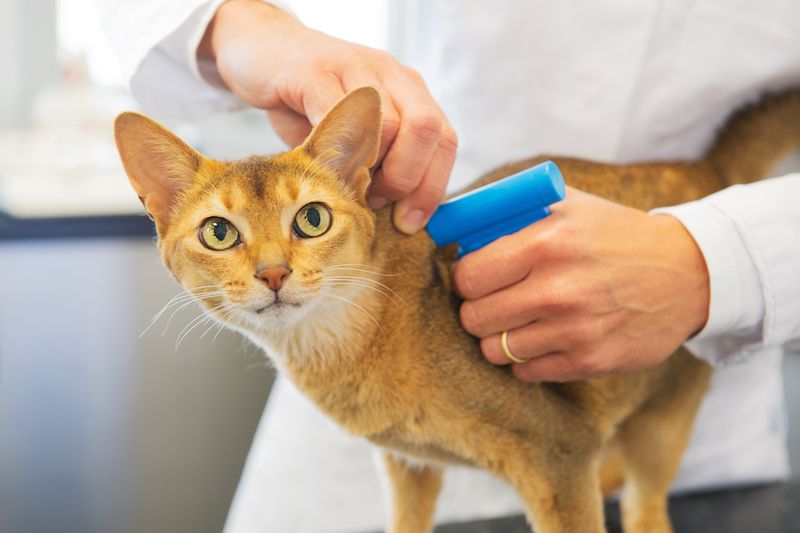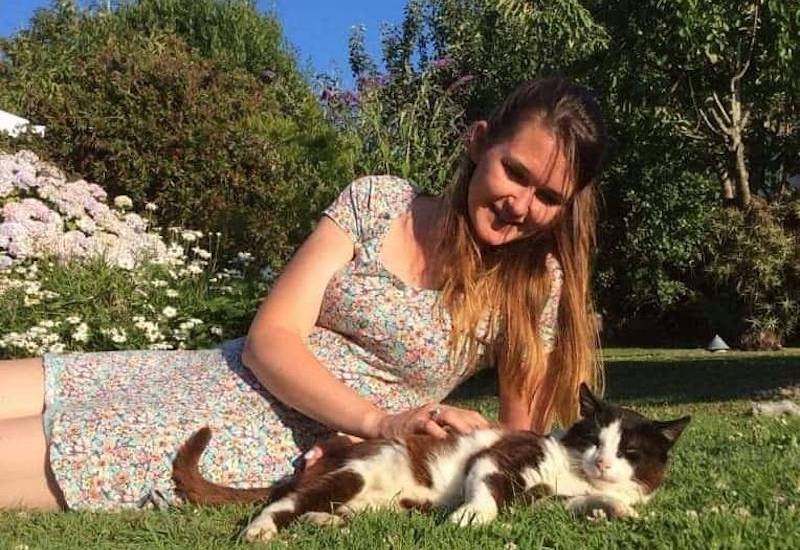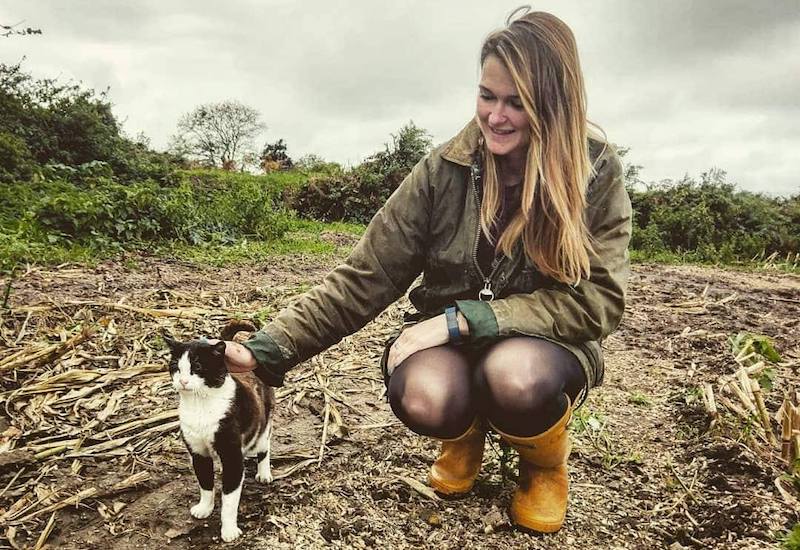

With calls for a new law to be introduced so drivers have to report any accidents involving cats, the States Vet thinks a different way of tackling the issue would be better.
David Chamberlain says ensuring all pet cats are microchipped would be a better use of resources as gathering enough evidence to proceed with a court case in any hit and run scenario would be very difficult.
Mr Chamberlain was speaking after a petition was launched by a young woman who was left devastated by the death of her pet cat, Tom, who was run over earlier this month.

Pictured: Amelia Smitheram launched a petition calling for drivers to have to report any accidents involving cats earlier this month after her pet, Tom, was killed in a 'hit and run'.
Amelia Smitheram said she was "absolutely devastated" when Tom was killed and through her own research she then found that the GSPCA deals with up to 300 accidents involving cats each year, while Animal Aid takes calls for around 100.
She is hoping that in future anyone involved in an accident like that would have to call the GSPCA, Animal Aid or Guernsey Police.
"I really hope that we can make it illegal to knowingly hit a cat and not report it. I understand that accidents happen but I'm sure the owner would find some solace knowing their cat was given the best chance at survival or wasn't alone."
Ms Smitheram's petition has been live since last week, but has almost 800 signatures.

Pictured: Tom and Amelia Smitheram. Ms Smitheram's petition can be found here.
But, the States Veterinary Officer thinks changing the law to give cats involved in accidents that level of protection would prove difficult.
“There is no doubt that the loss or death of a cat in a traffic accident can be very upsetting for the people for whom it has been a much loved household pets and companion, so ensuring that the accident involving a cat is reported is a very understandable wish.
"However, quite apart from the potential tying up of police resources and the difficulty of establishing the evidence for a prosecution, there are a number of features of cat road accidents that lead me to believe that we might be better focussing our attention on the introduction of the compulsory microchipping of cats."
At the moment it isn't compulsory for cats to be microchipped by the local animal charities and vets all offer it as a service. It also isn't a legal requirement to report it to Guernsey Police if you hit a cat.
Mr Chamberlain said approximately half of all cats involved in road accidents die, either immediately or later, but it is often difficult to locate a cat after one is involved in an RTA as they will move out of the way if possible. Of the 50% who survive the initial impact, they will either make their way home, are picked up by a local animal welfare organisation or hide in the vicinity of the accident.
Mr Chamberlain says; "It is very difficult for the driver, owner or animal welfare volunteers to find a cat that is injured in a road traffic accident but that can still run off into the undergrowth in the vicinity of the accident that is understandably very scared and intent on hiding. The cats that are hit but run off and hide may die after a period of time, they may make their way home later, they may be picked up by a local animal welfare organisation near the scene of the accident or on route home or they are simply never found.
"The role of local animal welfare organisations should, in my view be given some consideration, because they may be better resourced to pick up dead cats and identify owners than the police.
"When injured cats are picked up by animal welfare organisations or taken to private veterinary practitioners for emergency treatment, they are scanned for a microchip once they are stabilised. Where a microchip if found, its unique number can be used to identify its owner from the data base where the information of held. The owner can then be informed about the cat’s condition and they can contribute to decisions in the cats continuing treatment."
Comments
Comments on this story express the views of the commentator only, not Bailiwick Publishing. We are unable to guarantee the accuracy of any of those comments.